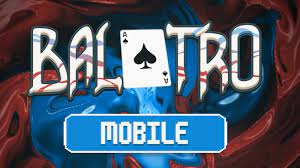
The joker card, often considered an enigma within a deck of playing joker card balance , has a rich history and varied interpretations that extend far beyond its role in games. This unique card symbolizes versatility, unpredictability, and the unexpected twists of fate. From its origins to its cultural significance, the joker card stands as a fascinating subject worthy of exploration.
Historical Origins
The joker card originated in the United States during the mid-19th century, evolving from a game called “Euchre.” In Euchre, players needed a trump card to enhance their chances of winning. The joker was introduced as a wild card, allowing players to substitute it for any other card in their hand. This concept of wildness gave the joker a unique position within the deck, differentiating it from the standard ranks of cards.
As card games spread in popularity, so did the joker. It became a staple in various games, including poker, where it can represent a wild card, adding an element of surprise and strategy to gameplay. The joker’s dual nature—both a wild card and a joker—reflects its inherent ambiguity.
Symbolism and Interpretations
The joker card has taken on numerous meanings across different cultures and contexts. Here are a few interpretations that highlight its significance:
- The Trickster: In many cultures, the joker is associated with the trickster archetype, symbolizing wit, humor, and cleverness. This character often disrupts the status quo, challenging norms and expectations. In literature and folklore, tricksters reveal truths through humor, showcasing the importance of questioning authority and embracing chaos.
- Duality: The joker embodies duality, representing both joy and sorrow. Its colorful, playful appearance contrasts with its potential for mischief and disruption. This duality can be seen as a reminder of life’s unpredictable nature—joy often accompanies sorrow, and vice versa.
- Transformation and Change: The joker’s ability to transform into any card reflects the theme of change and adaptability. In many ways, it symbolizes the potential for growth and the importance of embracing new opportunities. This aspect resonates with the notion that life is a series of evolving circumstances where flexibility is key.
Cultural Significance
Beyond its role in games, the joker card has permeated various facets of culture, including art, literature, and psychology.
- Art and Literature: The joker often appears in literary works as a symbol of chaos and uncertainty. In Shakespeare’s “King Lear,” the fool serves as a poignant reminder of the tragic themes of the play, often providing insight into the folly of the characters’ actions. In visual art, artists like Salvador Dalí have depicted the joker as a representation of surrealism, showcasing the blending of reality and imagination.
- Psychological Interpretations: In psychology, the joker can represent the shadow self—the parts of our personality that we may suppress or ignore. The concept of the shadow, introduced by Carl Jung, emphasizes the importance of acknowledging all aspects of ourselves, including the unpredictable and chaotic elements that the joker embodies.
The Joker in Modern Contexts
Today, the joker card continues to hold significance in modern gaming, as well as in pop culture. It appears in various card games, from traditional poker to newer variations, maintaining its role as a wild card. Additionally, the joker has influenced numerous symbols in entertainment, including the iconic character of the Joker in the Batman franchise, who embodies chaos and unpredictability.
The joker card’s visual representation has also evolved, often depicted as a whimsical jester with vibrant colors and exaggerated features. This image reinforces the card’s association with playfulness and mischief while also hinting at deeper, more complex themes of duality and transformation.
Conclusion
The joker card is far more than just a playing card; it is a symbol of versatility, unpredictability, and the intricate dance of life. Its rich history and multifaceted interpretations make it a captivating subject worthy of exploration. Whether seen as a trickster, a symbol of duality, or an emblem of transformation, the joker continues to remind us of the beauty and complexity of the human experience. In a world where certainty is elusive, embracing the spirit of the joker can lead to unexpected revelations and opportunities.
